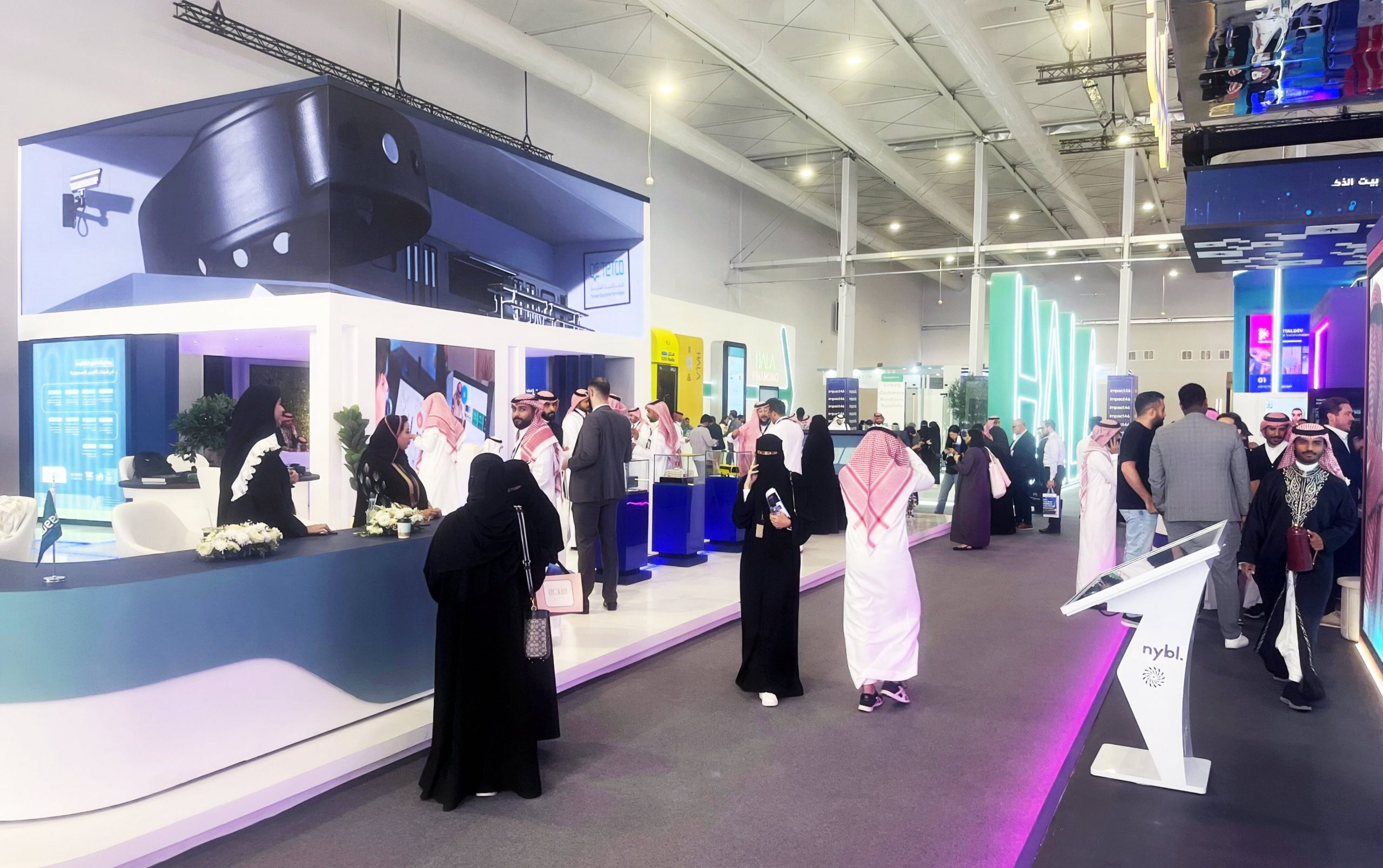Worldwide, businesses, especially in the Saudi technology sector, are facing an increasingly challenging operating environment. Companies are rethinking their strategies to improve agility, meet sustainability goals, and reduce costs.
For many, the response to these pressures is to explore new geographies. Backed by a growing economy and buoyant investment sentiment, Saudi Arabia has emerged as an obvious choice for entrepreneurs and high-growth businesses in the tech industry looking to start or expand operations, thanks to the country’s strong emphasis on cultivating a robust business environment.
The country’s leadership position in the tech sector has been reinforced by hosting LEAP 2024, the world’s biggest technology exhibition that brings together the global technology ecosystem. The event is expected to attract 172,000 attendees, more than 600 future-forward businesses, and 1,800 major global tech companies, such as Google, Microsoft, Oracle, Dell, Cisco, and Avaya. The event is set to witness tech investments skyrocketing to $11.9 billion, surpassing last year’s $9 billion, according to the Kingdom’s Ministry of Communications and Information Technology.
During LEAP, UIPATH, a global firm specializing in robotics and automation, announced the opening of its Saudi office, following its expansion into the market with the help of our on-ground team in Saudi. Meanwhile, Saudi contech BRKZ, another one of our expansion companies, also managed to raise $8 million in funding during the renowned event.
Driving Digital Transformation and Growth Under Vision 2030
Factoring in Saudi Vision 2030, the Kingdom is bracing itself to be a prime business destination for nearly everything. There are sweeping reforms across key economic sectors, opening up new avenues of growth and innovation and prompting bold entrepreneurial endeavors. The end goal is to increase small businesses’ contribution to GDP from 20% to 35% and boost foreign direct investment from 3.8% to 5.7%, as envisioned in Vision 2030.
The latest Global Entrepreneurship Monitor (GEM) report signals the growing reputation of the Kingdom as an ideal place to start a business, with entrepreneurship surging to record-breaking heights throughout the Kingdom in 2023. Out of 49 economies, the Kingdom has been recognized among the top economies globally in entrepreneurship, exhibiting an impressive score of 6.3 out of 10 in 2022 and 2023, up from 5.0 in 2019.
On the other hand, becoming digital-first is a core vision of Saudi Arabia, which aims for a 19.2% contribution to its overall GDP. The latest figures indicate that we are almost there, with the Saudi digital economy contributing 14% to its GDP in 2022. The improvement in the country’s score reflects a steady increase in its tech sector with increased participation from early entrepreneurs, SMEs, and large-scale businesses, backed by rapid digitalization over the years, contributing to the formation of an innovation-led, diversified economy.
Strong rise in business activity as confidence grows in Saudi’s technology sector
The improved entrepreneurship ecosystem reflects strong government commitment, crucial for any successful startup ecosystem globally. The Saudi government provides tax incentives, streamlined registration, and other measures to facilitate business expansion in the country. This has driven market optimism to new heights.
As a result, companies are increasingly eager to enter the Saudi technology market. Once nascent, this sector is now a key economic cornerstone of diversification and growth. At AstroLabs, we work with government and corporations to activate three pillars for Saudi’s tech sector advancement. These pillars include attracting global businesses, cultivating local startups, and integrating local corporates for cross-sector innovation.
Tech companies make up 32% of the businesses we helped expand to Saudi Arabia. Half of them originate from Europe (15%), Asia (18%), and the US (17%). Today, 35 companies have raised over $35 billion in funding after expanding to Saudi Arabia.
The Kingdom has improved its ease of doing business, becoming a global center for technology and businesses. The market offers several funding programs and initiatives targeting tech companies at all development stages. Key programs include the National Technology Development Program (NTDP), Misk Foundation, and the Saudi Unicorns program.
The Saudi Unicorns program supports high-growth businesses and aims to create local unicorns. The Mega Green Accelerator Program, led by PepsiCo with AstroLabs and SABIC, nurtures innovators addressing sustainability challenges.
Continued government support and vast market opportunities create a favorable environment for businesses. According to the GEM report, Saudi Arabia scored “more than sufficient” for entrepreneurship framework conditions. The level of established venture ownership reached 14%, up from 10% in 2021, showing a maturing ecosystem.
Reimagining growth opportunities in emerging digital sectors
The Saudi technology sector saw a record-breaking surge in VC funding last year. This bucked the global trend of slowing funding. In 2023, $1.8 billion was invested in Saudi startups, surpassing half of MENA’s startup funding. Saudi investors led the way, signaling a shift in venture capital dynamics. This figure shows a 33% YoY growth and 52% of the region’s total fundraising.
Fintech, e-commerce, and software led the fundraising efforts. Fintech secured the most funding, making up 51% of the capital deployed. BNPL providers Tamara ($340 million) and Tabby ($250 million) drove this, accounting for over half of VC activity. Both companies achieved unicorn status last year. E-commerce funding surged due to large rounds exceeding $100 million. Top fundraisers included Nana ($133 million), Sary ($150 million), and Floward ($165 million).
While funding often concentrates in a few sectors, there’s growing interest in untapped areas. These include health, renewable energy, and climate technologies. Investors now seek business models that generate returns and positively impact society and the environment. This trend aligns with Vision 2030’s sustainability goals.
Innovation drives economic progress. Empowering startups is crucial for economic diversification, accelerating digital and sustainable transformation.

